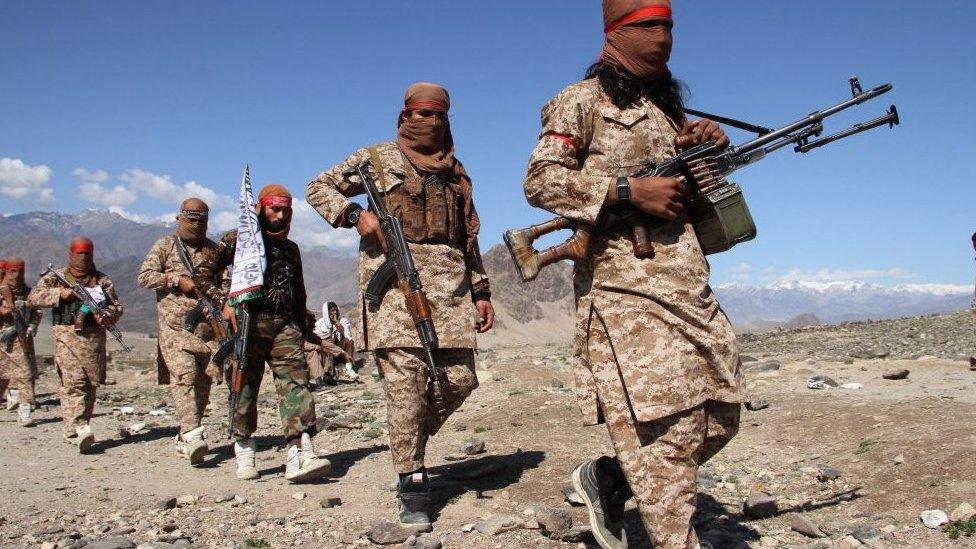Viewpoint: Taliban gaining upper hand in Afghanistan and Pakistan?
- Published
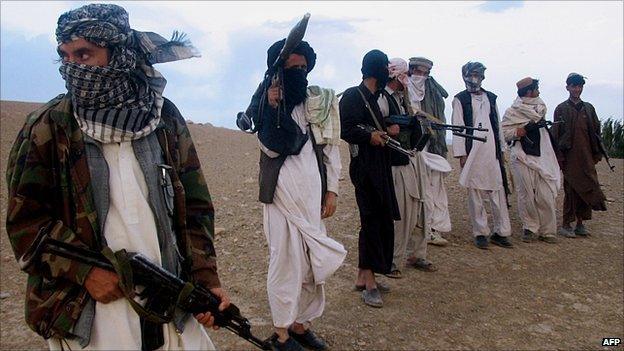
The Taliban are running rings around the governments of Afghanistan and Pakistan, argues guest columnist Ahmed Rashid.
The leaders of both Afghanistan and Pakistan have embarked on the perilous path of trying to talk with the Taliban, but they have surrendered the political initiative to the militants and risk the integrity of the state by declining to hold institutional talks.
The Taliban are playing for time by pretending to negotiate, while they exert their power and influence in order to fulfil their political objectives and continue to carry out suicide bomb attacks.
President Hamid Karzai now admits that he has been in secret contact with the Afghan Taliban over the past few months, while failing to use state bodies expressly set up for the purpose such as the High Peace Council. Meanwhile, he has infuriated the Americans by refusing to sign a treaty that would ensure the presence of US and Nato troops beyond December 2014, when all Western forces are due to leave.
The Loya Jirga, an assembly of Afghan elders, and the country's parliament both endorsed the treaty last year.
Controversial peace process
Most Afghans want foreign troops to stay but Mr Karzai has taken a provocative stance towards the US, partly, it now appears, to try and convince the Taliban that he is anti-American and sincere about not wanting US forces to stay on.
One of Mr Karzai's conditions to make up with Washington is for the US to restart a dialogue with the Taliban that was broken off by the militants themselves two years ago.
This mirrors a Taliban demand as clearly any talks now, with presidential elections approaching and the future uncertain, would elevate the Taliban's political status.
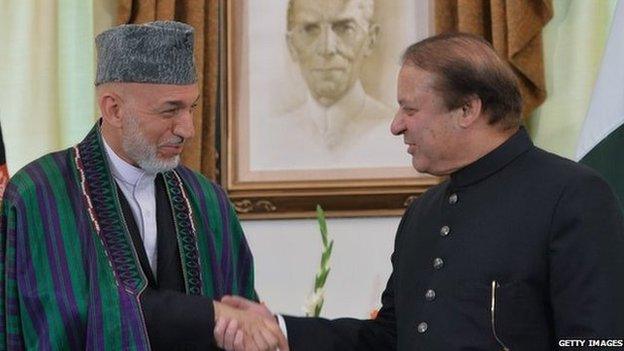
President Hamid Karzai and Nawaz Sharif both have hopes to contain the Taliban by peaceful means
Meanwhile Mr Karzai responded late to the continued mass killings by the Taliban such as the attacks on a Kabul restaurant last month that killed 13 foreigners including four UN officials, stopping short of an outright condemnation. Instead he took the chance to castigate the US in the wake of that attack and a US air strike in Parwan province.
So far it seems that the Taliban have cornered Mr Karzai and are winning the political game on all counts.
Mr Karzai's secret talks have yielded no results, the Taliban are offering no concessions and no let-up in their attacks.
Military offensive
In Pakistan, Prime Minister Nawaz Sharif has now launched a controversial peace process with the Pakistani Taliban.
Until last week there was a confluence of interests of support for a military offensive against the Taliban, whose attacks have killed hundreds of soldiers and civilians just in the past few months.
Domestic public opinion, the media, opposition political parties, Pakistan's immediate neighbours, the region and Western allies had all shown support for military action to restore the state's sovereignty over Pakistan's badlands.
It was a once in a lifetime moment.
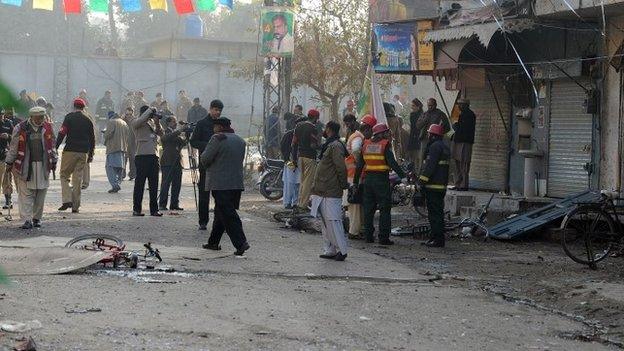
Bomb attacks have continued unabated in Pakistan since the new year
Instead, Mr Sharif announced he would hold talks with the Pakistani Taliban. He chose a committee made up of figures who are loyal to him, and those seen as sympathetic to the Taliban, to initiate negotiations.
The Taliban nominated ultra-conservative religious leaders to negotiate rather than their own leaders.
Although these religious figures are considered Taliban sympathisers, they are still only intermediaries.
It is a clever move as it absolves the Taliban of any real responsibility in the negotiations because they are not directly involved. They also maintain a veto power over the intermediary committee, which can always be blamed if things go wrong.
Even more humiliating is that the state is now seen to be talking with groups long condemned by the government itself as terrorist and anti-state.
Dictating the course
The army remains deeply frustrated at this turn of events but it needs the political cover which only the elected government can provide before it launches an offensive.
The army has maintained a geo-political agenda as it has gone after Pakistani Taliban, but left alone Afghan Taliban who could still be a strategic asset for Pakistan.
After days of wrangling, the delegations have only just met. Meanwhile the Taliban sustain a long and bloody list of attacks. There have been two suicide bombings on consecutive days in a cinema and a restaurant in Peshawar that killed 14 people and injured more than 60 - even as the two committees were deciding when to meet.
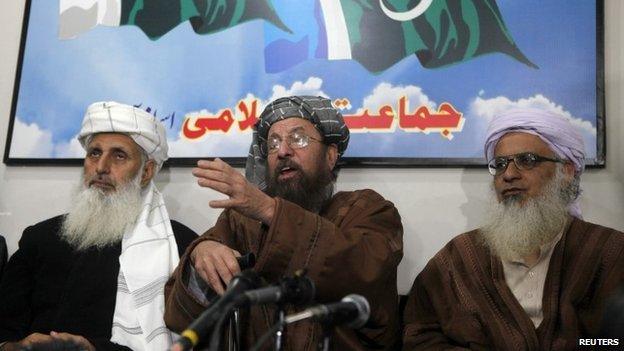
The Taliban negotiating team have only just met with the government
The government's decision to reach out to the Taliban has unleashed a barrage of mullahs appearing on television and in the press, all clamouring for the Taliban's main demand - the imposition of Sharia (Islamic law), which some insist could be carried out without changing the constitution.
Mr Sharif has opened a Pandora's Box, giving anti-democratic forces legitimacy and unprecedented access to the media and public opinion. Taliban sympathisers are now insisting that the government must first implement Sharia and then negotiate with the Taliban.
Pakistan appears to be on a cusp of enormous if not bloody changes. With the government weak and unprepared for an overarching strategy - that should include military action, reclaiming lost territory, economic development and talks - instead the Taliban and their sympathisers have the advantage.
Once constricted to a small corner of Pakistan, now the Taliban appear to be dictating the political future course for the entire country. If the government concedes on changing the legal system, Pakistan will cease to exist as a democratic country and its economic future will also be in peril.
- Published4 February 2014
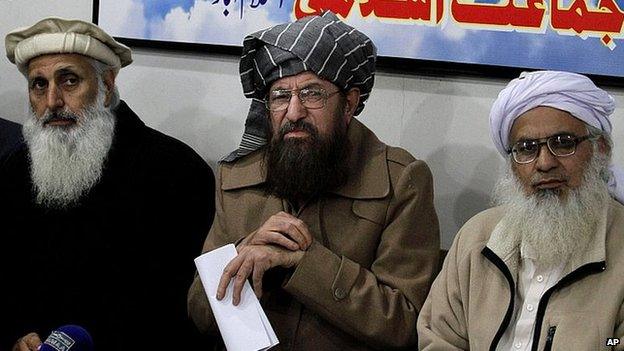
- Published25 January 2014
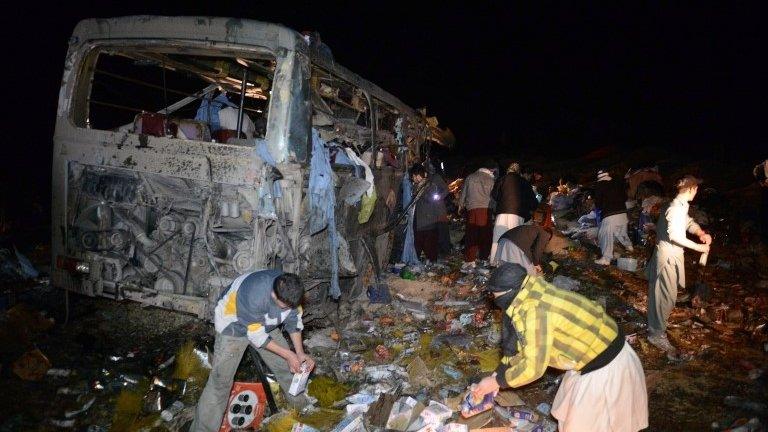
- Published25 January 2014
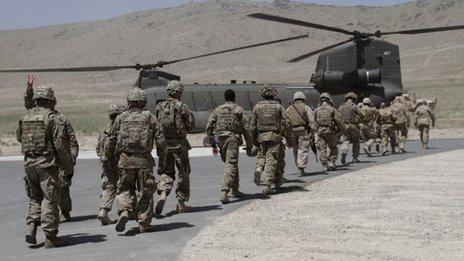
- Published12 August 2022
